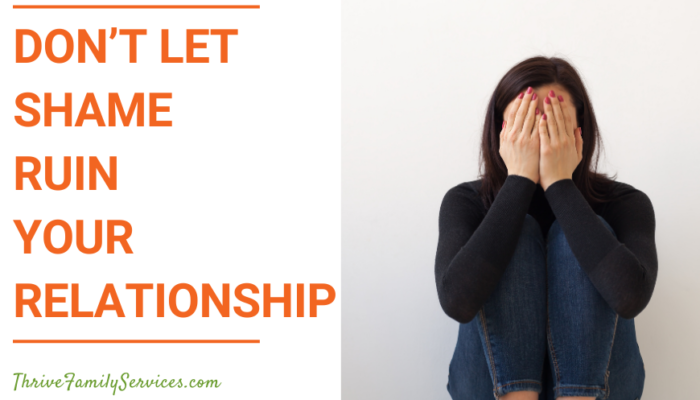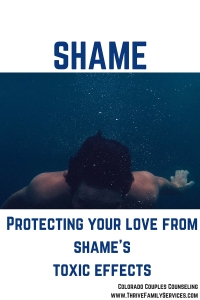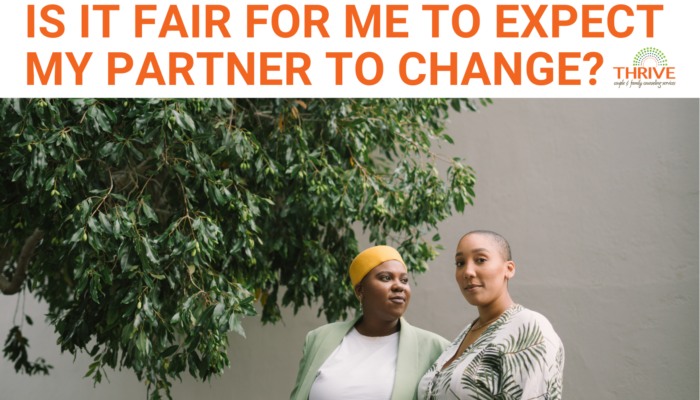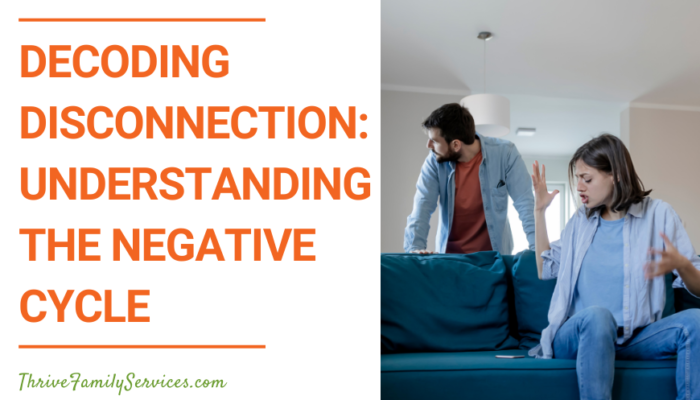How to Overcome Shame in Your Relationship
How do you know if shame is impacting your relationship? It may be if you have had thoughts like these:
- He doesn’t care about me.
- I can never tell him how I really feel.
- If I let her see all of my struggles, she would leave.
- I’m not good enough for her.
- I’m scared he will find someone better.
- I had an affair so I am no longer a worthy partner.
What is shame?
Everyone experiences shame. We experience shame when we feel small and unworthy of love and belonging. Different from guilt, “I did something wrong”, shame says, “I am bad”. It threatens our very core attachment needs (love, care, belonging, and acceptance).
Shame often creates body sensations – heat, nausea, flooding, roaring in the brain, etc.
Shame becomes toxic because of what we do with it.
What happens in couples when there’s shame?
With our core needs threatened, our limbic system gets hijacked- sending us into fight or flight.
Likely you find yourself fighting with your partner or withdrawing and pulling away. You think, “What are we even fighting about?”, since this process happens so quickly and is often unconscious.
First, your shame gets triggered. Then, you go into the story you believe about yourself, your partner, and your relationship.
This is where shame gets dangerous for relationships
We call shame the most disconnecting emotion because of the negative cycle it creates.
Shame tells you a story about how you are in relationships. This shame-based story can cause you to react to your partner by attacking, or pulling away. These are the very behaviors that exacerbate shame and disconnection.
If you tend to attack when you feel shame, you may end up feeling worse about yourself.
If you tend to pull away when you feel shame, you then feel further disconnected from loved ones. This reinforces the internal belief that you don’t matter.
The attacking or withdrawing you do to cope with shame can triggers shame or fears in your partner! They then react from that place of shame or fear. Each reaction only continues to push sensitive places in the other- resulting in a cycle that further perpetuates disconnection.
How do I get out of the shame cycle? First, look behind it.
We all long for acceptance, closeness, to feel loved, appreciated and important. Shame hijacks our chances at getting those basic emotional needs met.
The good news is – you don’t have to let shame damage your relationship.
Un-isolate your shame
The antidote to shame? Scary but true – you need to show your shame to your partner in a way that invites closeness.
Shame’s antidote: Sharing Vulnerability
Vulnerable has multiple definitions. We most often think of vulnerability as weakness/at risk of being hurt. In relationships, vulnerability can also mean being unguarded and open with your most tender, intimate parts.
Vulnerability in couples allows partners to take care of one another. How can we expect our partner to meet our needs and take care of us when we don’t allow them to see these tender parts of ourselves, like our deepest fears?
How to stop toxic shame dead in its tracks
When we can understand and stay curious about how emotions, thoughts, and behaviors are connected, we can then choose to do something different.
- Identify the triggers for your shame– What happens in your body? What is the cue that sends your body that “uh oh” response? Right before you form the story and judgments (“I’m not good enough, I always fail, He doesn’t love me, no one cares about me, I’ll always be alone”), what just happened?
- Slow down and do a reality check– What is the behavior you are engaging in? Are you getting defensive, arguing, yelling or pulling away? Gently remind yourself that although you have learned to protect yourself in this way, it is not the most effective way to manage your shame and fear, as it will only make you feel worse and result in further disconnection in your relationship.
- Name it– This takes a willingness to lean in to the discomfort and vulnerability, which is not easy, in fact, it can sometimes feel darn near impossible. But this is the most important step in doing something different. When you can make meaning of your emotions and speak them vulnerably, it allows you and your partner to step out of the cycle and increase your closeness. We often become so attached to our painful stories (not good enough, not appreciated, not loved), it may be hard to imagine how these beliefs can be proven false.
Shame-based stories have the most power to harm your relationship when they are unspoken.
When you name them, you allow for a new experience- asking those you love the most to hold and meet these underlying needs- allowing your fear to dissipate.
Every time you show empathy and compassion for both your own struggle and your partner’s struggle, we grow in our bond and connection.
Recognizing your shame (beliefs and fears) and inviting your partner close in times of doubt, rather than pushing them away, is how true healing occurs.
Here at Thrive, we love helping couples walk through dark places like shame and into close connection where you can be your true, most authentic selves.
If you want help to stop shame from damaging your relationship, we want to help you. Call us at 303-513-8975 or schedule an appointment online now. Schedule Appointment
Sign up for our couple’s relationship tips newsletter so you don’t miss another post to help your relationship.





